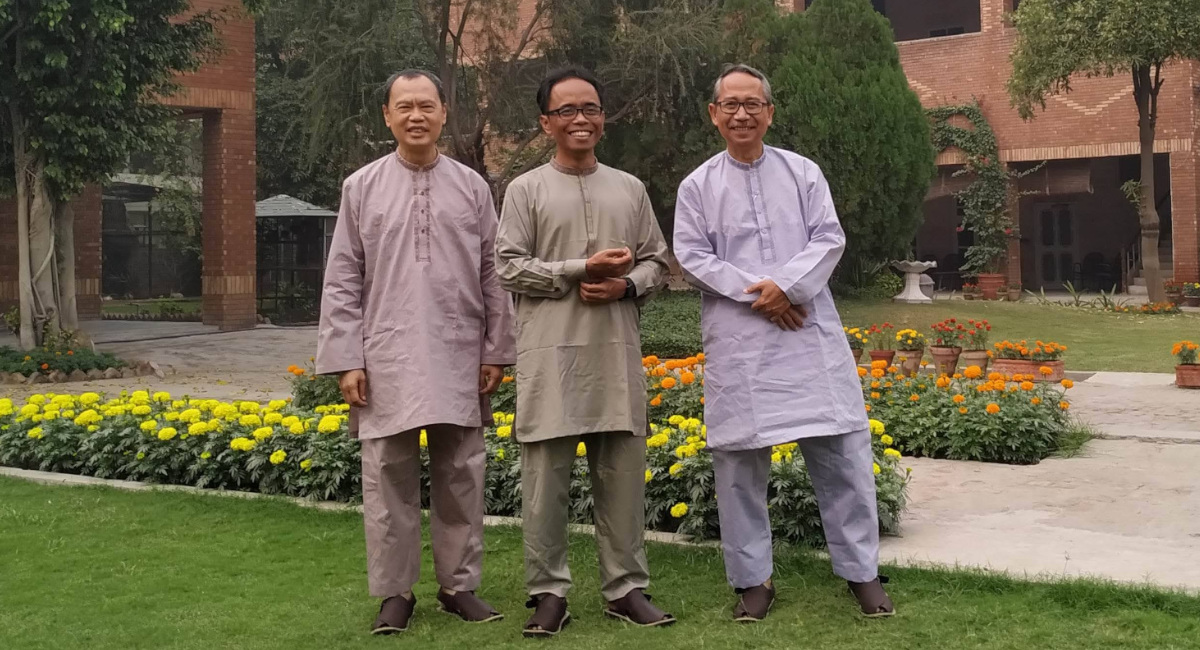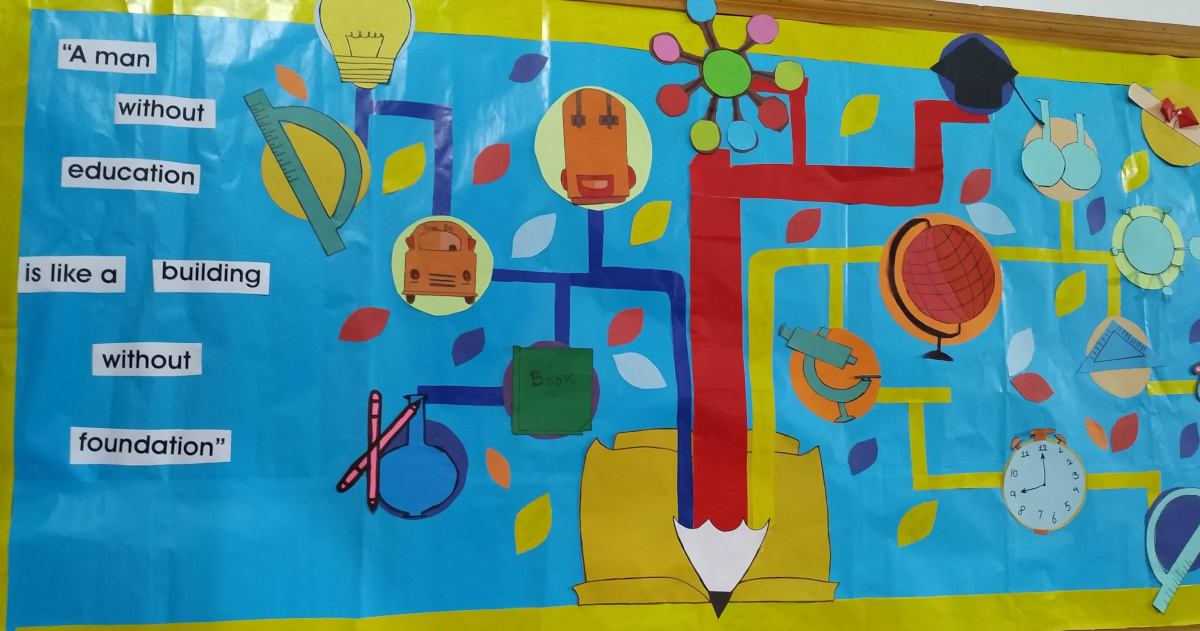
“Are you sure? Please stay safe!” This was what some people told us before we boarded our flight to Lahore. A neighbour of Afghanistan and an advocate of the draconian “blasphemy law”, Pakistan has a scary reputation among would-be travellers to the country. Trying to cast that image aside, I along with Fathers Tony Moreno and Kuntoro Adi visited Pakistan from 30 October to 6 November as part of the discernment process to transfer the Pakistan Mission from the Sri Lankan Province to the Indonesian Province and the Jesuit Conference of Asia Pacific.
The first port of call was Loyola Hall, Lahore, the home of the Jesuits in Pakistan. We were welcomed by Fr Juan Carlos, the superior of the mission, Fr Noel Ajanthan, the director of the candidates’ house, and Scholastic Petras George, who was doing Regency. A Peruvian, a Sri Lankan, and a Pakistani respectively, these are the only Jesuits residing in the country at the moment. To add to this rank, five scholastics are now studying in Indonesia, two juniors in Sri Lanka, one novice in the UK, and one priest in Rome. In a country where Catholics make up less than one percent of the total population, this represents a growing crop of vocations.

The current Jesuit presence in Lahore goes back to 1961 when Fr Alphonsus Schockaert, a Belgian national working in Darjeeling, arrived to establish the Jesuit Mission in the city. Before long he was joined by Fr H Schultz, a German missionary in Poona, Fr Robert Bütler, a Swiss missionary in India, and Br De Meyer, another Belgian. This in itself marked the third period of Jesuit presence in Pakistan after the first one at the invitation of Emperor Akbar of the Mughal Dynasty (1579-1760) and the period when Jesuits worked in Karachi and Hyderabad (1860-1935). In those different periods, works in interfaith dialogue, education, and lay formation featured predominantly.
At present, the Jesuits run various religious and lay formation programmes based in Loyola Hall. The centre also attracts many Muslim scholars who come to do research in its library and conduct seminars. Loyola Hall is known as a neutral space where everyone can feel safe and encouraged to speak their minds. We heard testimonies one early evening over a copious amount of chai or milk tea from leaders of several religious congregations, male and female, who found a home for growth in the centre. They also expressed their hopes for more Jesuits to give retreats, courses on spirituality and formation, and spiritual direction. Similar hopes were echoed by Archbishop Sebastian Francis Shaw OFM of Lahore Archdiocese when we paid him a visit. Diocesan seminarians need quality formation, both intellectually and spiritually, and he believed the Jesuits could offer much in that regard.

Outside the walls of Loyola Hall, the Jesuits run two high schools and one kindergarten. We met the teachers and students in their classrooms. Here Muslim and Christian students come together, encouraged by the quality and affordable education. The majority of the students come from poor backgrounds and the schools are heavily subsidised by the mission. In fact, the country’s Christian population are marginalised economically. Many are illiterate and have very little access to the state education system, which applies a quota system for minorities. In the meantime there are just a number of Catholic pre-university colleges in the country and no university. This prevents social mobility and makes the need for quality formal education great. The same wishlist was explored by Archbishop Benny Travas of the Arcdiocese of Karachi and Bishop Samson Shukardin OFM of the Diocese of Hyderabad in our encounters later on as we travelled to those regions.
Along the way we were treated to a variety of landscapes, from the hustle and bustle of megacities, such as Lahore and Karachi, to the barren desert surrounding Hyderabad. A great mix of ethnic groups, visible from their features and costumes, paint a colourful picture of a multicultural nation. Throughout the journey we felt very safe. The people’s resourcefulness is truly amazing and their warmth quickly dispelled the initial worry we had had before arrival. In fact, Fr Juan Carlos, a missionary in the country for 10 years and a veteran of the mission in Chad in Central Africa, felt safer in Pakistan than in his home country of Peru. We certainly had a memorable visit, and let’s hope this will open a new door to further engagement.

Fr Benny Juliawan SJ is the Provincial of the Indonesian Jesuit Province.

